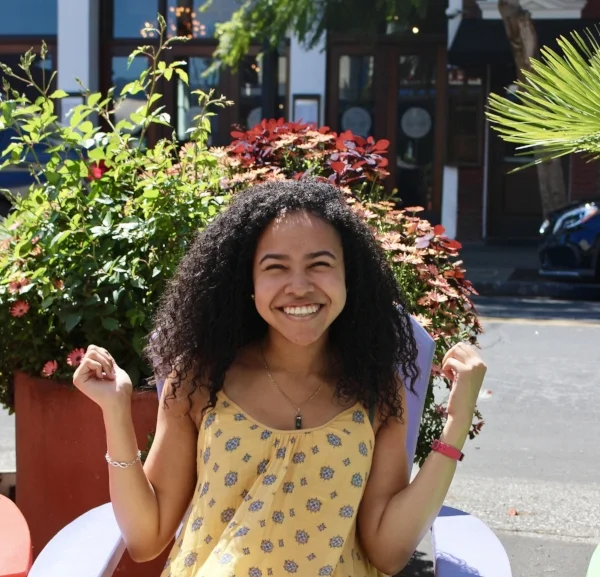Disordered Eating is Not a White Girl Issue, It’s a Mental Issue
Photo Credit: Eddy Lackmann
The day I realized I suffered from an eating disorder was a day of shame. Or so I thought at the time. Since when do Black girls have eating disorders? I was a strong Black woman. We don’t deal with “white girl issues.” Certainly not ones surrounding trying to be skinny. What type of mess is that? I blamed myself, unsure of why or how I had gotten to this place. It took me back to my summer days on Chicago’s South Side when I was younger. I spent them playing with the other kids on the block, every time fielding the accusations of why I was “talking white,” asking what I was mixed with, if I was a white girl, and if so, why did my mom look Black? My whole adolescent life was littered with the notion that my own black peers didn’t consider me to be one of them. Now, here I am facing a “white girl issue”. I guess I proved them right.
The summer between 6th and 7th grade still haunts me to this day. I had developed an anxiety disorder and didn’t understand it, resulting in triggering physical reactions. Anxiety is all about anticipation and worrying about events to come. Looking back, a lot of what fueled my eating disorder came from misplaced anxiety about what was happening in my life. I began each day with a stomachache, already nervous about having to face the toilet bowl that night. That summer I threw up every night for three months. I tried to stop it by eating less, which only resulted in dry-heaving over the toilet.
“I just wanted to fit in somewhere. Being skinnier so that the white girls in my class might like me more seemed like a way to do that.”
Throwing up wasn’t voluntary. What I did begin to understand was how powerful and in control I felt when I didn’t eat. It stopped me from throwing up, and I progressively grew thinner. I began to realize that I could finally fit into the same sizes as my white friends, whose skinny bodies I’d compared myself to since I had begun my education at a predominantly white private school. My identity had been questioned by my Black friends and I was singled out amongst my white classmates. I just wanted to fit in somewhere. Being skinnier so that the white girls in my class might like me more seemed like a way to do that.
My eating disorder developed alongside my anxiety disorder, which ended up being a very harmful combination. The anxiety often triggered my obsessions with eating as little as possible. It was an endless cycle, as I would constantly worried about and fixated on my weight. During high school, I discovered the scale and calorie count. I weighed myself every morning out in the hallway of my dorm at boarding school, as the rug in my room prevented my scale from being accurate. I made sure I didn’t have on any heavy clothing so that it didn’t make me weigh more. I had an ideal weight in mind and every time the number on the scale increased I panicked as I made a plan for the day that would ensure my weight going back down. I refused to eat breakfast, I hid away in my room for lunch and ate a Clif bar, and for dinner, I’d often eat rice with soy sauce.
This routine wasn’t as easy as I’ve explained. I often binged on pizza nights at school, telling myself I was having a “cheat day” followed by restricting my food intake for days afterward. I would look in the mirror and pick apart my thighs and my behind, imagining that they were a lot larger than they really were.
This behavior continued through my second year of college, with the added habit of bingeing more often. I binged frequently, mentally beating myself down afterward. I hated the fact that I had no control over my eating when really, it was just the result of restricting myself for so long.
I was still good buddies with the scale, and an even more vicious cycle began because of it. I would weigh myself each morning, panic no matter what the weight was, try to run more at the gym, get anxious about how much food I was eating, and then eat more because of how worried I was. I consistently gained more and more weight and I had no idea what to do with myself. It was getting to the point where I couldn’t take it. All I thought about was what I was going to eat and how many calories it had. It was at this point that I began therapy. Once my therapist found out about my issue, she sent me to a nutritionist.
The following months of nutritional therapy were filled with stress headaches, picking apart why I hated my body, why my food intake mattered so much to me, and how I could go about changing my thought process. It was incredibly challenging for me at first. Battling my thoughts and emotions surrounding food and just eating what I wanted felt impossible, until that gradually changed. Before I achieved my balance, I went through a six-month period where I ate anything I wanted. Donuts twice a week? I’m down. I continued this behavior until I felt like I had undone the years of restriction. It felt like freedom. Now, I have to give credit where credit is due. I met a woman when I started a new job in January of 2016, who became one of my very best friends. She ate anything she pleased, had a healthy workout schedule, and was happy about it all. If I hadn’t had her as an example, I’m not sure I’d be in the place I am today.
“His impact took a toll and led me to relationships where I wasn’t valued, experienced verbal abuse, and began to feel as if I could be easily discarded. I began to hate myself. I never thought I was good enough.”
The more comfortable I got with food, the more I discovered why my eating disorder happened in the first place. Though many factors contributed to it, a big one for me was that I grew up without a father. Though he’s alive, we never lived together and I didn’t see him a lot. His behavior towards me when we did interact often left me feeling like I wasn’t enough for him to love me and care for me, a feeling of rejection and unworthiness. His impact took a toll and led me to relationships where I wasn’t valued, experienced verbal abuse, and began to feel as if I could be easily discarded. I began to hate myself. I never thought I was good enough. I treated myself as I was treated by others who made me feel worthless.
There’s an idea I’ve tried to live by as of late. The idea that we are not defined by our past damaging experiences, and after a certain age, a parent is no longer responsible for the ways they hurt you. It’s up to you to build yourself up and remediate the pain within you. Once I took ownership of my feelings and stopped relying on others to define who I was, something changed within me.
“I’ve accepted myself for who I am, and devote every day to becoming a better version of me in some way. ”
Today, I can wholeheartedly say I love myself with all my heart. I can look in the mirror at my body and say “Damn girl you lookin’ GOOD!” I eat what I want, and listen to my body when it needs more. I allow myself to be intuitive, tuning into what I desire instead of trying to put restrictions on myself. Some weeks, I’ll have mochi ice cream every night before I even eat dinner. Other weeks, I’ll be on my chicken, quinoa, vegetable concoction flow. I listen to myself. I give my body what it wants because I am worth it. I still don’t work out frequently because, I’ll be honest, I’m still a little afraid to get into bad habits. Another thing I’ll admit: you can catch me on a scale once every two weeks or so. Though there might be a few inklings of my eating disorder left, I am the happiest I have been with myself and the way I eat. My weight does not define me. I’ve accepted myself for who I am, and devote every day to becoming a better version of me in some way. I refrain from focusing on any negative aspects of my body. In my mind, there are none. It feels incredible.
I wanted to tell my story for a few reasons. First, to bring light to the fact that disordered eating is not a white girl issue. It’s a mental issue. Anyone can experience one and I want to break down the idea that Black women will be frowned upon and can’t admit to having this serious issue because it’s not supposed to affect us. Second, not many people know that eating disorders go way past anorexia and bulimia. It didn’t click until I was sitting in my nutritionist’s office thinking about why I was there. Disordered eating lies on a spectrum. You also may not see the physical effect on a person. It can range from the constant obsession with weight and food intake to making yourself throw up every day and more. Third, and most importantly, I wanted to show any Black woman going through any type of eating disorder that yes, there are other women of color like you and yes, it is okay to get some help. The more we talk about this, the easier it will be to face the issue.
Ayorinde is a native Chicagoan who loves podcasts, meditation, and inspiring others to feel good about every inch of their being. Her blog, Bright-Eyed Joy, is dedicated to encouraging self-love and looking within to find the most authentic version of oneself.
Instagram: @Brighteyedjoy
Twitter @BrightEyedJoy
Facebook: @BrightEyedJoy


